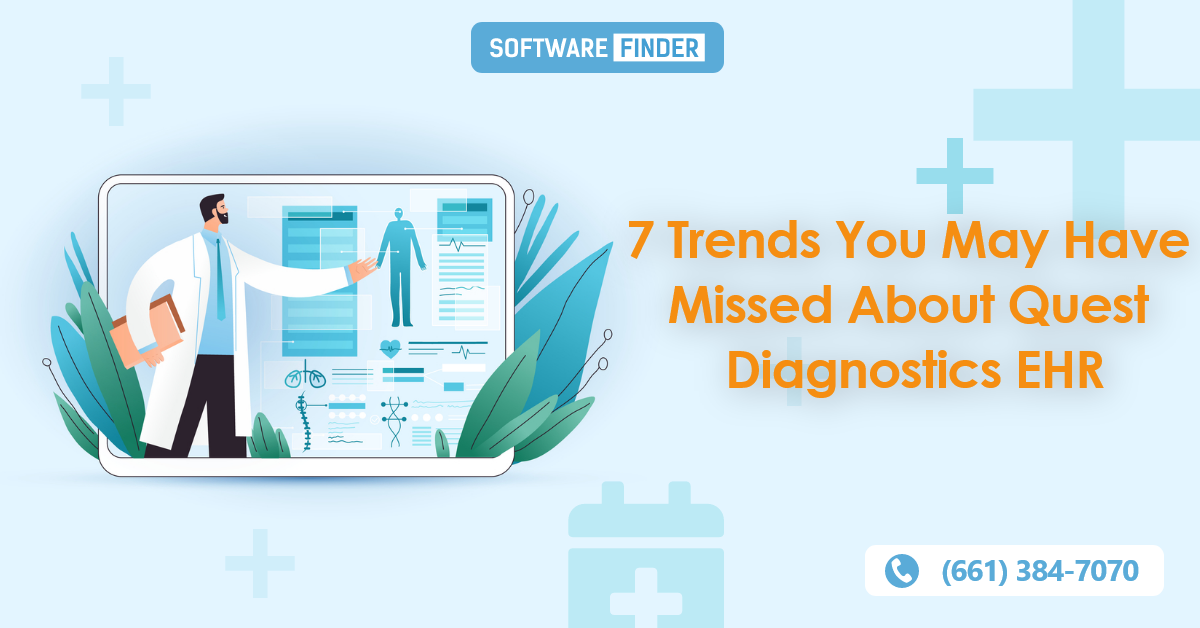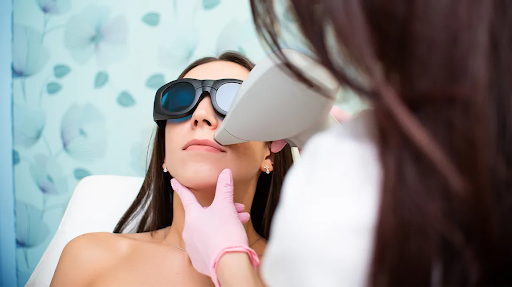Whether you are considering using a Quest Diagnostics EHR system or are already using it, you may be missing out on some important trends. These include the rise of nonprescribed opioids, the misuse of fentanyl and heroin, and the COVID-19 test that is magnifying racial disparities in healthcare.
COVID-19 Magnifies Racial Disparities In Healthcare
Racial disparities in healthcare are a longstanding challenge in the United States. Black and Hispanic Americans experience disproportionate rates of illness and death. These racial inequalities are driven by structural racism, which is a systemic form of discrimination that manifests in the areas of access to care and underlying health conditions.
For decades, people of color have been subject to a wide range of social inequities in terms of access to food, housing, education, and healthcare. In some cases, these disparities have widened, and in others, they have persisted.
Disparities in the US have been exacerbated by the COVID-19 pandemic. Black and Hispanic Americans are at an increased risk of premature deaths from the coronavirus. However, research is still inconclusive as to what is causing these disparities.
One way to address racial inequities is to increase access to medical treatment. This is not only critical for preventing unnecessary deaths, but also for improving the nation’s economic prosperity. There are many state and local initiatives being launched to address the needs of underserved populations.
Other approaches include promoting healthy physical activity in minority communities. Investing in safety net hospitals and community health centers would benefit both the US and people of color. Several private organizations are also engaged in efforts to eliminate disparities.
Misuse Of Fentanyl, Heroin, And nonprescribed opioids
There are several reasons to use Quest Diagnostics EHR, including the fact that it carries the name of one of the oldest medical technology companies in America. This also means that you’ll be able to leverage the expertise of some of the industry’s top toxicology experts. Moreover, the company offers a stellar turnaround time. As such, it’s a favored choice for physicians.
The company’s Health Trends(r) report is the result of an exhaustive analysis of millions of de-identified clinical drug monitoring tests. The resulting report is a hefty smorgasbord of scientific, medical, and technological data. Among the many tidbits in the trove are several novel insights in the management of complex health conditions. In particular, the company took note of the fact that most patients who have suffered from an opioid overdose are not receiving adequate care and treatment. Hence, the need to better educate, monitor, and manage these patients.
Of course, there’s no such thing as a perfect solution. It isn’t just a matter of preventing opioid misuse, but rather ensuring optimal patient adherence to prescribed medication regimens. A lack of access to healthcare services can also be a triggering factor for relapses. Besides, the best treatment plans usually entail a mixture of counseling and prescription medications.
Cancer Diagnoses Declined During The First Year Of The Pandemic
In the first year of the pandemic, the number of new cancer diagnoses was considerably lower than expected. This is likely because people are avoiding seeking routine health care due to the fear of getting sick. However, delayed diagnoses may have adverse effects on clinical outcomes.
A study by Quest Diagnostics examined the rate of cancer diagnosis during the coronavirus pandemic. The company collected data on more than 800,000 patients over four time periods. Researchers found a 30% decline in the rate of eight common cancers during the first three months of the pandemic.
Other studies have also reported a decline in cancer diagnoses during the pandemic. One study conducted by the European Cancer Organisation estimated 1.5 million fewer cancer patients in Europe during the first year of the pandemic.
There are several possible explanations for the decline in cancer diagnoses. They include societal restrictions, recommendations to conserve resources, and people putting off regular medical check-ups in fear of becoming infected. Another study, this one by researchers in Denmark, found a decrease in cancer diagnoses during the first two weeks of the pandemic. In fact, the rate of cancer diagnoses in the first six weeks was nearly halved compared to the first week of the pre-pandemic period.
COVID-19 Testing Plays A Significant Role In The Pandemic Response
COVID-19 testing is important in identifying those infected with the virus and helping to treat those affected. It also helps characterize the spread of the disease.
For this reason, health departments have played a critical role in America’s pandemic response. Despite challenges and institutional silos, they have led the fight to protect vulnerable populations. These health workers have been essential to the prevention and treatment of COVID-19 infections. They are particularly useful in places with the largest health workforce shortages.
In addition, many health departments have developed additional testing capabilities, such as specialized testing for seroconversion or infusions of antigen-based antibodies. This allows them to work with commercial laboratories and reference labs like uprise EHR allow.
However, there is significant variability in the performance of these tests. This can affect the accuracy of the results. The scientific community needs to develop optimized diagnostic techniques and test methodologies.
Another issue has been the lack of adequate infrastructure and resources. Due to underinvestment and neglect, a robust public health system can deteriorate. That’s why states, cities, and health departments have teamed up with public and private partners to help manage outbreaks.
During the outbreak, some health departments used social media and other forms of communication to keep communities informed. They coordinated vaccine distribution and performed surveillance. Other health departments met with communities and worked to increase access to testing.
SARS-CoV-2 Sequencing For Public Health
SARS-CoV-2 sequencing is a critical component of public health surveillance. It allows scientists to identify changes in the genetic code of a pathogen. This information can improve diagnostics and outbreak response. In addition, researchers can use the data to study transmission patterns.
The Centers for Disease Control (CDC) leads a national consortium of laboratories that perform SARS-CoV-2 sequencing. These laboratories include commercial diagnostic laboratories and public health and hospital laboratories. Public health laboratories have a responsibility to share their genomic sequence data with CDC.
The United States was able to identify and isolate a new variant of SARS-CoV-2 in February, which was found to carry a mutation in the spike protein. Researchers are evaluating the impact of this mutation on the virus’s ability to replicate and spread. They also examine the potential effects of the variant on current vaccines and countermeasures.
Using a high-throughput method, HiSpike, researchers have identified several spike variants in real field samples. It can sequence up to 10-fold more specimens than conventional methods.
Since the SARS-CoV-2 outbreak in the United States last summer, experts have called for increased efforts to monitor the spread of variants. The CDC has responded by implementing genomic surveillance programs.
Temporary Pay Cuts
It’s not surprising that Quest Diagnostics would consider cutting their staff some slack. During the last two weeks of March, testing volume at the company’s labs dropped 40 percent. Thankfully, a majority of employees returned to their normal schedules. However, the company still had to announce a series of moves to keep its churn rates down.
The company also announced a 401(k) matching program reshuffle and an enhancement to its annual incentive plan. In announcing these measures, Quest also made a few veiled digs at its competitors. Although these cuts will not affect current test results, they will certainly impede future growth.
Among the company’s latest round of layoffs, there’s one that is particularly noteworthy. It’s an initiative that seeks to improve the health of underserved communities. For instance, it will provide access to donated medical equipment, and a combination of tested and true charitable contributions. While the program is only in its infancy, the organization has already racked up more than 800,000 COVID-19 tests. At this rate, the competition will soon be chomping at the bit to get in on the action. Regardless of the outcome, the organization is certainly in the right business.
COVID-19 Pandemic Impact On Quest Diagnostics EHR
The COVID-19 pandemic has created a perfect storm for illicit drug use and prescription medication misuse. As a result, this public health emergency has drawn unprecedented attention to the data gathered by hospitals, clinics, and labs. It has also highlighted the need to strengthen IT infrastructure.
In the case of COVID-19, Quest Diagnostics is a key partner in the pandemic response. Through its national network of patient service centers, Quest provides reliable laboratory testing. Specifically, the company performs COVID-19 molecular testing at twelve laboratories in the United States.
Additionally, Quest is working to help healthcare organizations with post-COVID test volume management. For example, the company is implementing a standardized software intelligence platform to ensure that its labs respond to the increasing demands. Also, Quest recently expanded its capacity to 25,000 tests per day. This is an increase from the 15,000 it was able to achieve just a few weeks ago.
While Quest has been through some challenging times lately, the company continues to deliver critical laboratory results. Now, more than 106,000 COVID-19 tests have been performed by Quest since the pandemic began. Additionally, Quest has partnered with HP, one of the world’s leading technology companies. They will launch a nationwide tour on October 28th. The tour will begin in Baltimore, MD.




